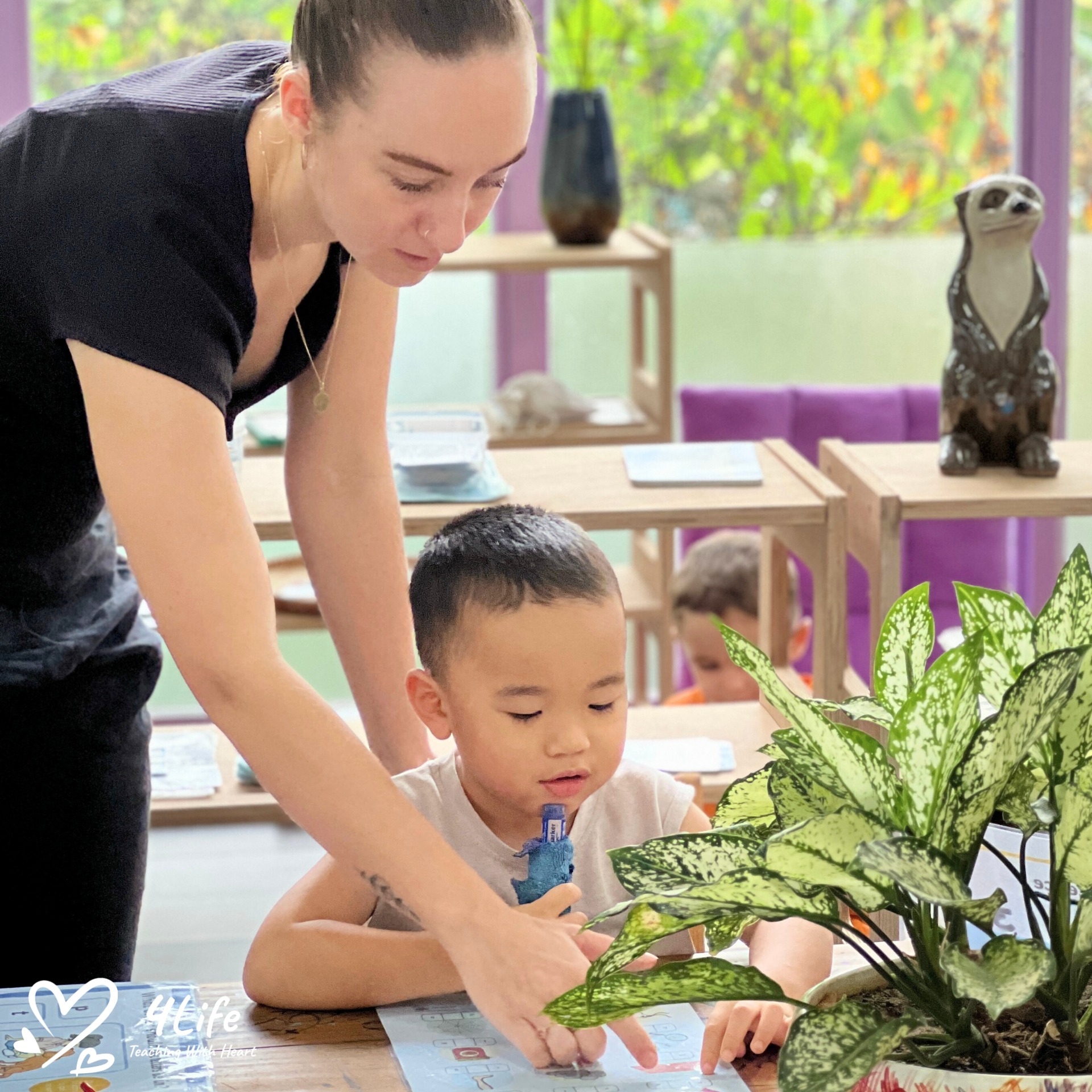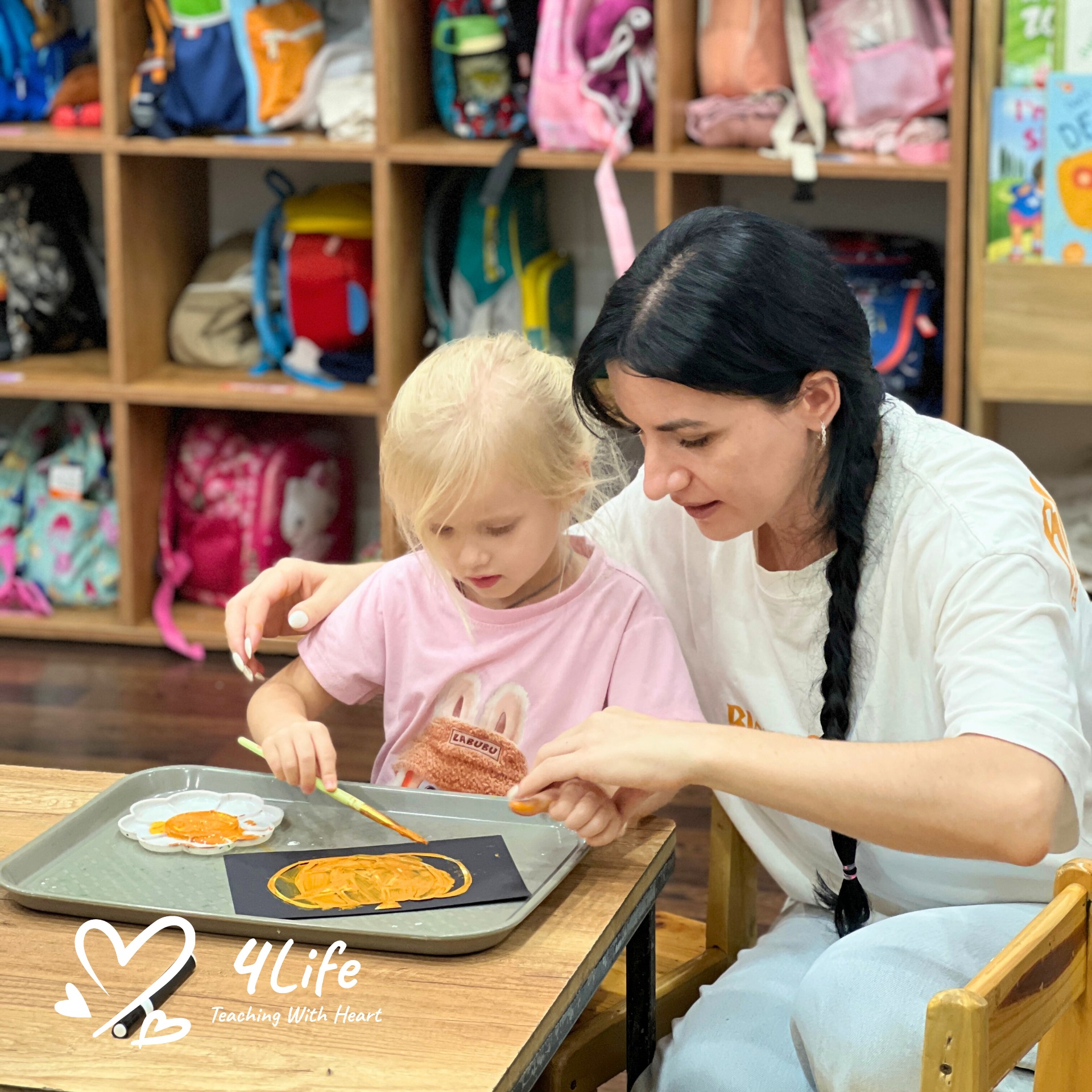Understanding your child’s personality is the first step toward nurturing their potential with empathy and care. Every child is unique – by embracing their individuality, we help them thrive in their own way. Let’s find out with 4Life Education how you can better support your child’s growth by truly seeing who they are.
Every child is wonderfully unique
When we become parents, we might imagine our children will be like us – or how we wished to be growing up. But often, our little ones surprise us. They have their own preferences, sensitivities, and ways of engaging with the world. Some dive into new experiences with confidence. Others watch from the sidelines, needing time to feel safe.

Every child is wonderfully unique
Understanding your child’s personality is about noticing, listening, and appreciating who they truly are – not who we think they should be. It means giving them the message: you are welcome here, just as you are.
Temperament shapes behavior early on
From the moment a baby is born, their temperament starts to shine through. One infant might smile at everyone; another may need time to feel secure in new arms. Some babies sleep easily and adapt well. Others fuss more and resist unfamiliar routines.
As toddlers, these traits grow stronger. A child who was slow to warm up may become the one who clings to your leg at birthday parties. A naturally adventurous baby might now charge through playgrounds without a second thought. These are not “good” or “bad” traits – they are simply parts of a child’s unique emotional makeup.
By watching and following your child closely, you can learn what energizes them, what drains them, and what helps them feel at ease.
Supporting shy or introverted children
Children who are naturally quiet or hesitant often need a different kind of support. When these children are pushed too hard into social situations, they may withdraw even further. But when parents acknowledge their feelings and prepare them gently, it builds trust and emotional security.

Supporting shy or introverted children
Try saying:
“I know crowds can feel big and noisy. If you’d like to stay close to me, that’s okay.”
Or before a new event:
“We’ll be meeting lots of people. Would you like to stay near Daddy when we arrive, or hold my hand?”
When children feel understood, they gain the confidence to explore at their own pace. And often, they surprise us. A reserved child might become the most enthusiastic classmate in school once they feel safe and seen.
Recognizing and managing challenging behavior
Every child has difficult moments. But before labeling behavior as “challenging,” it helps to ask:
– Is this behavior typical for my child’s age?
– Is this reaction understandable given the situation?
– Is something new or stressful happening in their world?
For example, a toddler throwing toys is often exploring cause and effect – not being disobedient. A child who misbehaves when a new sibling arrives may be seeking reassurance that they are still loved and valued.
Challenging behavior often arises from unmet needs – tiredness, hunger, overstimulation, or the need for connection. By slowing down and observing, you can usually trace the cause and respond with empathy rather than frustration.
Children need consistent ground rules
Some children—especially those who are spirited and active – need reminders of the basic boundaries in daily life. Ground rules help children feel safe and supported, even when they seem to resist them.

Children need consistent ground rules
Simple and clear expectations work best, such as:
– Be kind to others
– Take care of your belongings
– Use gentle hands
– Tell the truth
Frame rules in the positive:
Instead of “Don’t hit,” say, “Use gentle hands.”
Instead of “Stop yelling,” say, “Let’s use our calm voice.”
These reminders help your child learn what to do, rather than focusing on what not to do.
Notice and celebrate their efforts
Children who are often corrected may begin to expect negative reactions – and behave accordingly. But when you shift the focus to what they’re doing well, it transforms the tone of your relationship.
Notice small things:
“You hung up your coat without me asking. That was thoughtful.”
“I saw how you shared your toy. That was really kind.”
Even when behavior is difficult, try to catch good intentions underneath:
“You were really upset, but you used your words instead of hitting. That shows a lot of self-control.”
When you believe in your child’s goodness, they learn to believe in it, too.
Understanding personality differences in the family
Sometimes, your child’s personality may feel unfamiliar – even difficult – because it differs from your own. A highly social parent may struggle with a quiet child. A calm, reflective parent might feel overwhelmed by an intense, spirited child.

Understanding personality differences in the family
But these differences are opportunities to grow. Instead of trying to change your child, ask yourself: What do they need from me to feel accepted and supported? And how can I stretch a little to meet them where they are?
Families are a beautiful blend of personalities. Understanding your child’s unique traits deepens your relationship and builds respect on both sides.
How personality develops over time
Personality is shaped not only by temperament, but also by relationships and environments. As parents, you play a powerful role in how your child grows to see themselves and the world.
Children need:
– Warm, consistent love
– Clear, kind guidance
– Opportunities to explore their interests
– Support from teachers and caregivers who build on their strengths
– Encouragement to belong and contribute to their community
– Daily reminders that they are valued exactly as they are
The more secure and respected children feel, the more their personalities can flourish.
Offer choices to empower decision – making
One simple way to support your child’s developing personality is by offering choices. Letting them decide between two acceptable options gives them a sense of agency without overwhelming them.
– “Would you like apple slices or banana for snack?”
– “Do you want to wear the blue shirt or the green one today?”
– “Would you like to help water the plants or set the table?”

Understanding Your Child’s Personality
These small decisions help children feel confident in who they are becoming.
It’s easy to forget that young children are not just future adults – they are whole people right now, with preferences, feelings, and personalities all their own. Respecting that helps your child feel worthy of love and belonging.
When your child challenges you, surprises you, or makes choices you wouldn’t, remind yourself: This is not about control. This is about understanding. Parenting isn’t about molding a child into who you want them to be. It’s about helping them become the fullest version of who they already are.
Understanding your child’s personality is not a one-time task – it’s a lifelong relationship of discovery, empathy, and trust. By watching closely, listening with an open heart, and adjusting your approach to suit their unique traits, you show your child that they are deeply seen and fully loved. In every quiet moment and lively challenge, you have the chance to say: I understand you, I accept you, and I’m here to help you grow.








0 Comments